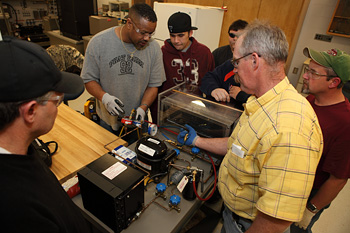Appalachian Forests are More Than Just the Trees
For too long, economic development in Appalachia has been focused on attracting big, outside businesses with tax breaks and other incentives. However, these firms often can move out as easily as they moved in, as many communities who saw their livelihoods move overseas can attest. Growing local businesses from community and regional assets has begun to gain more traction, and, as the Daily Yonder showed recently, are creating jobs as well. The Daily Yonder profiled Rural Action, a non-profit based in Appalachian Ohio, and their Wealth From Forests Initiative, which connects buyers interested in sustainably-harvested lumber to landowners, loggers and sawmills. "'We’re building a wood products brokering business to help locally owned producers access the green market,' [Executive Director Michelle] Decker said. They started out working with buyers in Virginia and Tennessee, but now are bidding on jobs in Ohio, New York, and Pennsylvania." Central Appalachia’s forests are abundant, and once were a source of great wealth for the regio n. But as the recession hit the homebuilding industry, the region’s timber industry has declined precipitiously. Between 2004 and 2009, the number of people employed in the wood products manufacturing sector in Appalachian Kentucky, Ohio, Virginia and West Virginia dropped an estimated 27%. Meanwhile, poor management practices, invasive species and wildfires have reduced the quality of our timber. Programs like the Wealth From Forests Initiative build the incentive for managed land and sustainable harvesting practices, as certified wood products fetch higher prices and are seeing increased demand: "As these...
Read More



